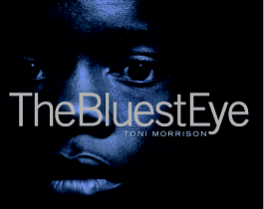This week the Adams 12 School Board voted to settle a challenge to Toni Morrison's 'The Bluest Eye' in Advanced Placement literature classes. The board voted in support of the superintendent's decision, not outright banning the book but approving such great restrictions as to make the book impossible to teach.
In early August, we wrote a letter to the district, urging them to trust the professional judgment of teachers and the freedom to read of high school students (available here).
'The Bluest Eye,' which has been approved for instructional use in Adams 12 schools for over a decade, first came under challenge in 2010 when two parentsobjected to sexual content in the book and its subject matter. The book explores the oppressive nature of standards of beauty through the story of a young black girl who is impregnated by her father.
Ultimately, the 2010 challenge resulted in a number of restrictions being placed on how the book could be taught, to what grade level and in what context. Teachers kept this in mind this year when they decided to teach the book to an 11th grade Advanced Placement literature class and sent home permissions slips to all parents, advising them about the book's contents and offering a chance for students to read an alternate assignment. Most students read the book while a handful opted out. The parents of a few who had opted out nevertheless lodged a complaint alleging that their objections differed from previous complaints and that children who had to "opt out" were treated unfairly. (One student who opted out signed the petition to keep the book, saying that she made the choice for personal and religious reasons but was not adversely affected.)
Because the challenge followed the 2010 challenge, the book was not eligible to be reviewed by a full committee but was put before the superintendent, Chris Gdowski. Gdowski's decision required there be sections of the course that did not teach the book at all, and others that did teach the book. Those who wished to opt out could be placed in the appropriate class section.
Though this decision was essentially in favor of the complainant's position and remedied their concerns — that students have the option to take the course alongside their classmates without reading the book — they appealed, calling the decision arbitrary and capricious. They wanted the book banned from curriculum. The board addressed this appeal in their recent vote.
Students and teachers who spoke in favor of the vote were discouraged by the attitude of community and board members at the August 21 meeting. Board members said that students should read things that were "more positive" or "safer."
"Banning and censoring this tells students that … racism, incest, rape, abuse, are taboo subjects that should not be mentioned. It sends the message that (someone) experiencing these things should not reach out for help, because if it's too explicit to read, it's too explicit to talk about," student activist Bailey Cross told a reporter.
A petition to retain the book and support teacher's academic freedom, started by Cross, garnered over 1,200 signatures. The complainants' petition had just over 700 signatories.
The Concerned Parent's petition read: "We are not seeking to censor or ban any book from school library collections or to hinder student access to reading material. We simply do not want developmentally inappropriate and graphic books used for classroom instruction." In other words, we're not censoring anything, we just don't want you to read it.
The board and superintendent made it clear that they would be taking steps to amend policies governing the selection of instructional materials, demonstrating that the work is by no means done as far as the Kids' Right to Read Project is Concerned.


